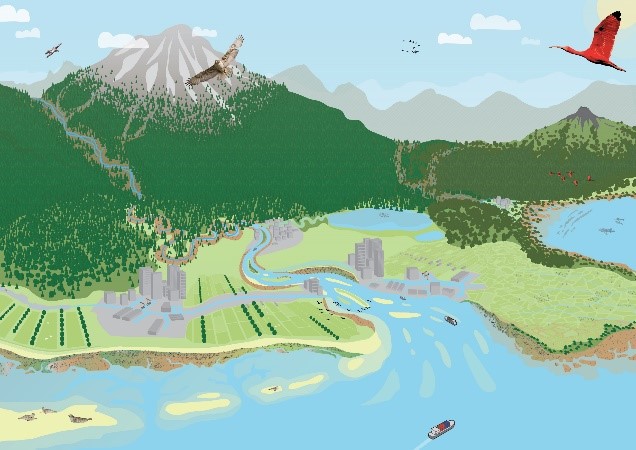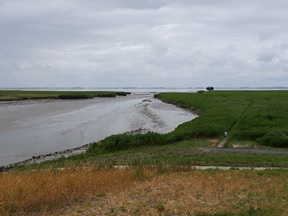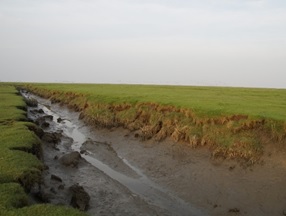Pilot Eems-Dollard provides important knowledge for sustainable management of estuaries
The Eems estuary in the north of the Netherlands is one of the last two open estuaries in the Netherlands. The estuary is a unique nature reserve that forms the transition from the river Eems to the Wadden Sea. Due to climate change and co-use by the shipping industry as well as a number of important industrial areas, this nature reserve is under pressure. The objective for 2050 is to make the estuary ecologically healthy, robust and resilient. Innovative solutions, inspired by working with and for nature, are very suitable for this. In the form of pilots, various solution directions can be experimented with.
Royal HaskoningDHV is involved in a number of these pilots. One ongoing pilot is the Marconi salt marsh in Delfzijl. This is a collaboration between the municipality of Delfzijl, the EcoShape knowledge consortium and EcoShape partners Royal HaskoningDHV, Wageningen Marine Research, Arcadis and Deltares. Royal HaskoningDHV has also been working on the Eems-Dollard mud sedimentation project outside the dikes since 2019. An MIRT project was used to draw up a design for a large-scale pilot in the Dollard aimed at sedimentation of mud, improvement of the ecological quality and, very importantly, gathering knowledge. In this way, the pilot contributes to sustainable management of the estuary.
Examples in digital iReport
Royal HaskoningDHV also applies the knowledge gained through these types of pilots in other projects worldwide. Among other things, design proposals have been made for mangrove parks, artificial tropical sisters of the Dutch salt marsh projects. Working via a nature-based approach also provides tools for carrying out projects worldwide aimed at tackling the effects of climate change. Various examples of projects in which the nature-based approach has been used and Building with Nature techniques are featured in our digital iReport.



